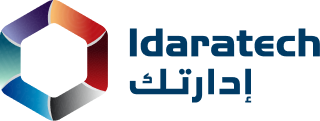Starting a business is difficult enough! HR may occasionally get lost in the chaos. Entrepreneurs who focus on the “big picture” rarely have time for the details. As a business expands, scaling, workflow optimization, and process automation problems are frequently encountered. When an organization’s workforce grows, managing its human resources becomes more challenging.
You can use a Human Resource Management System (HRMS), specialist software that helps with HR activities, to handle all daily HR tasks and personnel and payroll requirements.
Let’s now examine what HR software is and why HR recruiting software benefits startups and big organizations.
What is HR Software?

HR Recruiting software includes any enterprise application that facilitates personnel data management and HR-related activities. Software for human resources should incorporate hiring, orientation, staff management, time management, payroll service, and strategic human capital management.
Businesses of all sizes use human resource software to maximize employee and management performance, which increases productivity and overall employee satisfaction.
Since it is now widely acknowledged that people are an organization’s most valuable resource, HR Recruiting software development has allowed for the seamless management of administrative HR activities while maintaining a focus on talent development. People’s roles are evolving to become more data-focused, which enhances workforce and business performance. The success of the largest organizations in any industry depends on these activities.
Top Benefits of HR Recruiting Software for Startups and Big Organizations

1. Improves efficiency of HR department:
Efficiency can be increased by cutting back on tedious administrative tasks and automating some procedures within a business. Most HRMS make it simple to automate business activities, collect data centrally, and add visibility through charts and graphs. To enhance personnel management and workflow, an HR management system can include the following key features:
- Payroll:
Payroll management is crucial since mistakes in payroll processing can lead to a company’s demise. Paycheck calculations pay, schedule management, and accuracy are possible with an HRMS.
- Time & attendance management:
This function keeps track of employee’s working hours and ensures they get paid fairly for any overtime. Keeping track of this data without missing any specifics and without an HRMS is challenging.
- Onboarding:
Is the onboarding procedure at your business easy, fast, and effective? If not, then you need an HRMS. An HRMS can improve onboarding effectiveness by:
- Clearly defining each employee’s responsibility
- Enabling businesses to track their development
- Building connections with newcomers
2. Saves Cost:
Since salaries, payroll taxes, and benefits are typically among the highest line items, managing payroll and benefits expenditures is a primary issue for all organizations. Human resources professionals have access to several strategies to save money using HR management tools without sacrificing the employee experience. Additionally, gamification features promote and make it simple for workers to adopt good lifestyle habits to obtain prizes and premium discounts, which are advantageous for the company.
3. Effective time management:
Your HR team’s only resource is time, which is limited. You must thus assist them in developing time-saving systems. Your HR personnel won’t have time for things that matter more, like resolving legal matters and enforcing corporate standards, if they continuously manually enter data, make phone calls, and interview people.
Although an HR Recruiting software platform isn’t the ideal option, it does allow organizations to save time and better allocate manual resources to tasks that are crucial to the success of their business.
4. Better and precise data handling:
HR must ensure that employees know how to identify phishing emails with risky files or links and how to react to them, working with the internal communications team to keep applicable security policies updated. The processes used by HR Recruiting software benefits ensure that all policies are updated and that all employees have approved of them. To prevent unauthorized access to employee data in the first place, the HR side of the system offers role-based access and system limits.
5. Better decision making:
When HR professionals aren’t spending much time on administrative tasks and can trust that day-to-day benefits, payroll and personnel administration are accurate, they can focus on improving the overall employee experience. Suppose the benefits administrator isn’t mired in ensuring compliance and providing reporting. In that case, she can look for new ways to educate and engage the workforce on the benefits available to them, raising morale and aiding retention.
6. Reduces human error:
Human error is one of the main causes of excessive company expenses. By automating Hr activities, employees are allowed to cross-check their work for potential errors and reduce the risk of common errors like double entries. Automating payroll is highly valuable for small firms because human data entry causes the majority of payroll problems.
7. More precise details:
The volume of information that passes through an HR department nowadays makes it practically difficult for any individual or group to process it. This indicates that important information is frequently missed or lost.
Working with HR Recruiting software has the advantage of removing your reliance on human constraints. Data is combined and processed in effective ways that let you get more precise insights and decide strategically.
8. Enhances employee self-service:
One of the most in-demand functions of modern HRMS software is employee self-service. Employees frequently ask specific concerns concerning terms, conditions, pay, leave, and other issues. However, the HR division finds it very challenging to address these concerns individually for hundreds of employees.
An automated HR management system provides better employee self-service and more staff satisfaction. With an HRMS, employees can independently check their available paid time off, paid sick leave, or capacity for remote work. Employees typically have their accounts on HRMS software where they can access any necessary information.
9. Regulatory compliance:
Human resources have always been in charge of making sure the company complies with local, state, and federal laws, and their role is only growing in complexity. As a result of the pandemic, HR must now take responsibility for HR compliance violations resulting from cybersecurity breaches to new work practices and changes to labour legislation. With 69% of HR organizations in the survey reporting that they are successfully using their HR systems to monitor and report on compliance, organizations report a high success rate when using them to monitor compliance requirements.
10. Metrics:
It’s one of the major benefits of HR Recruiting software. Access to analytics metrics is essential for managing HR costs and compliance risks and boosting employee engagement. The main source of that data is the HR system. To plan for future personnel initiatives and anticipate attrition in key positions, HR departments are examining data.
Businesses find it easier to link indicators to company objectives when correct data is readily available and can be viewed in real-time. For example, companies looking to cut costs associated with recruitment can easily track crucial metrics like turnover rates, cost per employee, and time to hire. This makes it easier to connect hiring costs to hiring quality.
Why HR recruiting Software are important for Startups and Big Organizations

Anywhere a small business is beginning to grow, it should be thinking about its next hire. Every prospective employee it hires early on will greatly impact its workplace culture and the development of its business, whether it has ten or one hundred people.
If you are a small business owner trying to streamline and improve your hiring process, read further about why startups and organizations need HR recruiting Software.
- Creates a stable corporate culture:
If you haven’t already, establish a shared corporate objective and a set of guiding principles that your team can comply with. In conclusion, the most prosperous businesses have a strong reputation among their employees.
- Customization based on Needs:
The right recruiting Software won’t ruin your hiring process; instead, it will make it better because every company is unique, and needs vary by job and industry.
Software for recruiting can be easily tailored to any company’s requirements and preferences.
- Applicant Tracking Systems
Applicant Tracking Systems (ATS) may effortlessly interface with recruiting Software to streamline and manage your hiring procedures.
- Candidate Relationship Management Systems
Using a candidate relationship management (CRM) system, recruiters can actively uncover candidates by creating candidate pools and developing them through recruitment activities.
By implementing effective marketing strategies, such as using data and sending automated messages to their talent pools, startups can strengthen their brand identity.
Conclusion
Finally, small organizations can benefit from using HR Recruiting software. There are a few drawbacks to investing in this technology because it is both practical and economical.
However, You must conduct adequate research and be aware of your objectives. Because every platform is unique, you’ll want to confirm that you have access to the required functionality.
FAQs
Question 1: What is HR recruiting Software and what are its benefits?
Businesses can conduct several HR-related tasks electronically with the help of HRIS software. Along with passive data collection and storage, HRIS software now supports a variety of HR tasks, including time tracking, succession planning, and recruitment.
Question 2: What are the biggest risks to your business related to HR?
The areas with the most risk are Employee classification as exempt vs non-exempt, insufficient or ambiguous employment policies, mistakes in providing and administering employee benefits, and improperly handled employee relations difficulties.
Question 3: How can human resources assist the success of a company?
Having a general understanding of the entire business, HR Recruiting Software frequently helps create organizational structures. In addition to providing training, induction, recruiting, job descriptions, and redundancies, which all contribute to improving the organization and raising customer satisfaction, human resources also help to increase productivity.
Question 4: Why are human resources important to businesses?
Because it is their responsibility to ensure that the company gets the most out of its personnel, human resources managers are the lifeblood of the business.

